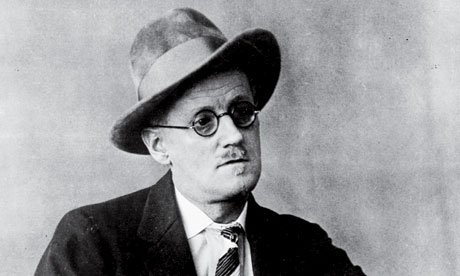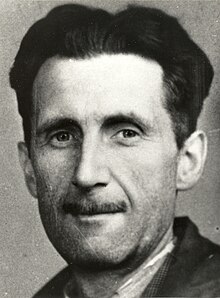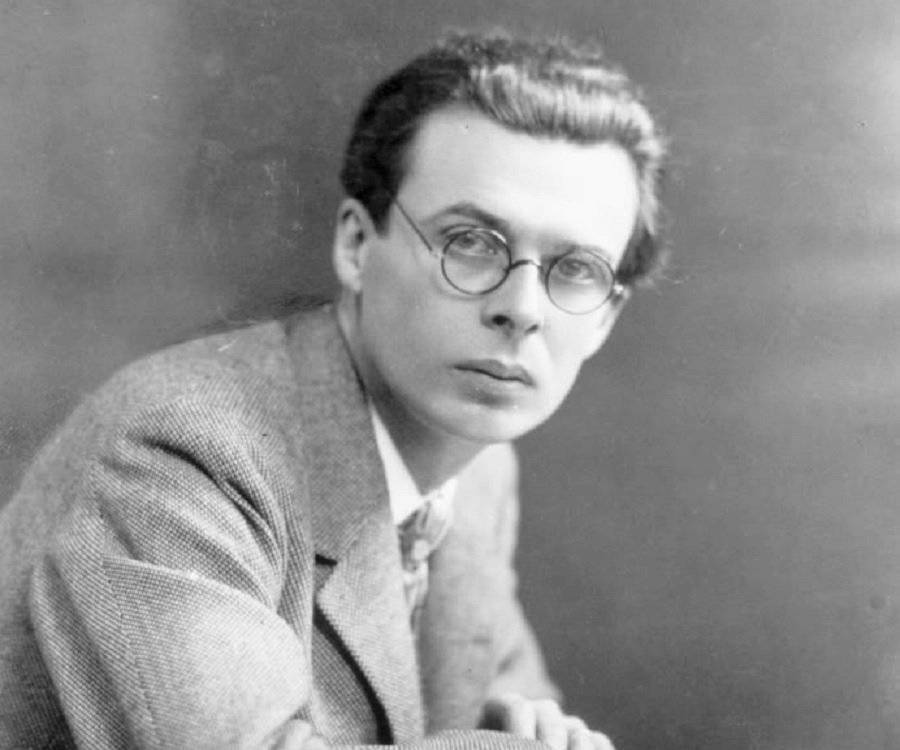
GREAT ENGLISH MONARCHS
✪ HENRY VII

WIVES

GOLD COIN TUDOR SYMBOL


BEOWULF
In my opinion Beowulf shows us a little sample about how the language, beliefs and costums were. Also how the culture mantains the traditions. I think this poem was played as a phone broken because it was told and retold from generation to generation. But each time included new words, change in religions, music and art
Beowulf] Old English is an Old English epic poem consisting of 3182 alliterative lines. It may be the oldest surviving long poem in Old English and is commonly cited as one of the most important works of Old English literature. A date of composition is a matter of contention among scholars; the only certain dating pertains to the manuscript, which was produced between 975 and 1025.The author was an anonymous Anglo-Saxon poet, referred to by scholars as the "Beowulf poet"
Geoffrey Chaucerc. 1343 – 25 October 1400), known as the Father of English literature is widely considered the greatest English poet of the Middle Ages. He was the first poet to be buried in Poets' Corner of Westminster Abbey.
CANTERBURY
Hamlet
William
Shakespeare ; 26
April 1564 -23 April 1616) was an English poet, playwright, and actor, widely regarded as
the greatest writer in the English language and the world's pre-eminent
dramatis
Marxism is a method of socioeconomic analysis that analyzes class relations and societal conflict using a materialist interpretation of historical development and a dialectical view of social transformation. It originates from the mid-to-late 19th century works of German philosophers Karl Marx and Friedrich Engels.
Feminism is a range of political
movements, ideologies, and social
movements that share a common goal: to define, establish, and achieve
political, economic, personal, and social rights for women.[1][2] This includes seeking to
establish educational and professional opportunities for women that are equal
to such opportunities for men.
Feudalism was a combination of legal and military customs in medieval Europe that flourished between the 9th and 15th centuries. Broadly defined, it was a way of structuring society around relationships derived from the holding of land in exchange for service or labour.
The concept of an archetype /ˈɑːrkɪtaɪp/ appears in areas
relating to behavior, modern psychological theory, and literary
analysis. An archetype can be:
1.
a
statement, pattern of behavior, or prototype (model)
which other statements, patterns of behavior, and objects copy or emulate.
(Frequently used informal synonyms for this usage include "standard
example", "basic example", and the longer form "archetypal
example". Mathematical archetypes often appear as "canonical examples".)
2.
a Platonic philosophical idea referring to
pure forms which embody the fundamental
characteristics of a thing in Platonism
3.
a
collectively-inherited unconscious idea, pattern of thought, image, etc., that
is universally present in individual psyches, as in Jungian psychology
4. a constantly recurring symbol or motif in
literature, painting, or mythology (this usage of the term draws from
both comparative anthropology and
from Jungian archetypal theory). In various
seemingly unrelated cases in classic storytelling, media, etc., characters or
ideas sharing similar traits recur.
Daniel Defoe ; c. 1660 – 24 April 1731),was an English trader, writer, journalist, pamphleteer, and spy, most famous for his novel Robinson Crusoe. Defoe is noted for being one of the earliest proponents of the novel, as he helped to popularise the form in Britain with others
Robinson Crusoe[ is a novel by Daniel Defoe, first published on 25 April 1719. The first edition credited the work's protagonist Robinson Crusoe as its author, leading many readers to believe he was a real person and the book a travelogue of true incidents.[2]
silk road
The Silk Road was a network of trade routes, formally established during the Han Dynasty of China, which linked the regions of the ancient world in commerce. As the Silk Road was not a single thoroughfare from east to west, the term 'Silk Routes’ has become increasingly favored by historians, though 'Silk Road’ is the more common and recognized name. Both terms for this network of roads were coined by the German geographer and traveler, Ferdinand von Richthofen, in 1877 CE, who designated them 'Seidenstrasse’ (silk road) or 'Seidenstrassen’ (silk routes). The network was used regularly from 130 BCE, when the Han officially opened trade with the west, to 1453 CE, when the Ottoman Empire boycotted trade with the west and closed the routes.
Pride and Perjuice
Jane Austen 16 December 1775 – 18 July 1817) was an English novelist known primarily for her six major novels,
The time machine

-people have a level of inteligence of one of our five-years old children.
- fruit was all that they ate
- horses, cows and sheep and dogs had disapperared from Earth.
-people are lazy.
Dubliners

James Augustine[Aloysius Joyce (2 February 1882 – 13 January 1941)
was an Irish novelist, short story writer, and poet. He contributed to the modernist avant-garde and is regarded as one of the most influential and important authors of
the 20th century.
Joyce is best known for Ulysses (1922), a landmark work in which the episodes of Homer's Odyssey are paralleled in an array of contrasting literary styles, perhaps most
prominent among these the stream of consciousness technique he utilized. Other well-known works are the short-story
collection Dubliners (1914).
George Orwell

Eric Arthur Blair (25 June 1903 –
21 January 1950),[1] better known by
his pen name George
Orwell, was an English novelist, essayist, journalist, and critic. His work
is marked by lucid prose, awareness of social
injustice, opposition to totalitarianism,
and outspoken support of democratic
socialism
Orwell's
work continues to influence popular and political culture, and the term Orwellian –
descriptive of totalitarian or authoritarian social practices
– has entered the language together with many of his neologisms, including cold war, Big Brother, Thought
Police, Room 101, memory hole, newspeak, doublethink,
and thoughtcrime
Cleopatra

Cleopatra VII Philopator (Greek: Κλεοπάτρα Φιλοπάτωρ; 69– August 12, 30 BC[2]), known to history simply as Cleopatra, was the last active ruler of Ptolemaic Egypt, briefly survived as pharaoh by her son Caesarion. After her reign, Egypt became a province of the recently established Roman Empire.
(Cleopatra VII; Alejandría, 69 - 30 a. C.) Última reina de Egipto, perteneciente a la dinastía de los Lágidas o Ptolomeos. Hija de Ptolomeo XII, fue casada con su propio hermano Ptolomeo XIII, con quien heredó el trono en el año 51 a. C. Pronto estallaron los conflictos entre los dos hermanos y esposos, que llevaron al destronamiento de Cleopatra.
Sin embargo, su suerte cambió al llegar hasta Egipto las luchas civiles de Roma: persiguiendo a su enemigo Pompeyo, Julio César fue a Egipto y tomó partido por Cleopatra en el conflicto con su hermano. Durante la llamada «Guerra Alejandrina» (48-47 a. C.) murieron tanto Pompeyo como Ptolomeo XIII y tuvo lugar el incendio de la legendaria Biblioteca de Alejandría, que se perdió para siempre.
Cleopatra fue repuesta en el trono por Julio César, que se había convertido en su amante (46 a. C.); y contrajo matrimonio de nuevo con su otro hermano, Ptolomeo XIV, a quien manejó a su antojo. Cleopatra trató de utilizar su influencia sobre César para restablecer la hegemonía de Egipto en el Mediterráneo oriental como aliada de Roma; el nacimiento de un hijo de ambos (Ptolomeo XV o Cesarión) parecía reforzar esa posibilidad.
Tras el asesinato de Julio César en el 44 a. C., Cleopatra intentó repetir la maniobra seduciendo a su inmediato sucesor, el cónsul Marco Antonio, que por aquel entonces luchaba con Octavio Augusto por el poder (36 a. C.). Cleopatra y Antonio impusieron su fuerza en Oriente creando un nuevo reino helenístico capaz de conquistar Armenia en el 34.
Entonces estalló la «Guerra Ptolemaica» (32-30 a. C.), por la que Augusto llevó hasta Egipto su lucha contra Antonio. El enfrentamiento definitivo tuvo lugar en la batalla naval de Actium (31), en la que la flota de Antonio fue derrotada fácilmente al abandonarle los egipcios. Marco Antonio consiguió huir y refugiarse con Cleopatra en Alejandría; cuando las tropas de Octavio Augusto tomaron la ciudad, Antonio se suicidó.
Cleopatra intentaría aún, por tercera vez, seducir al guerrero romano -en esta ocasión, Octavio Augusto- para salvar la vida y el trono; pero Augusto se mostró insensible a sus encantos y decidió llevarla a Roma como botín de guerra. Ante tal perspectiva, Cleopatra se suicidó por el procedimiento ritual egipcio de hacerse morder por un áspid. Augusto aprovechó la circunstancia para asesinar también a su hijo Cesarión, extinguiendo así la dinastía ptolemaica y anexionando Egipto al Imperio Romano.
Michael Moore

Michael Francis Moore (born April 23, 1954) is an American documentary filmmaker and author.[1] He is the director and producer of Fahrenheit 9/11 (2004), a critical look at the presidency of George W. Bush and the War on Terror, which is the highest-grossing documentary at the American box
office of all time and winner of the Palme d'Or.
Moore has written and co-written eight non-fiction books, mostly on similar subject matter to his documentaries
obras distopicas
1984 (1948)
George Orwell

2. El Proceso (1925)
Franz Kafka

3. Un Mundo Feliz (1932)
Aldous Huxley

4. Fahrenheit 451 (1953)
Ray Bradbury

5. ¿Sueñan los androides con ovejas eléctricas? (1968)
(Blade Runner) Phillip K. Dick

6. Distrito 9 (2009)
Neill Blomkamp
7. Antiviral (2012)
Brandon Cronenberg

8. Niños del hombre (1992)
P. D. James

9. Ghost in the shell (1989)
Masamune Shirow

10. 12 Monos (1995)
Terry Gilliam
Franz Kafka
Aldous Huxley
 Aldous Huxley was born July 26, 1894, in the village of Godalming, Surrey, England. The third son of Leonard Huxley, a writer, editor, and teacher, and Julia Arnold, also a teacher, the young Aldous grew up in a family of well-connected, well-known writers, scientists, and educators.
Aldous Huxley was born July 26, 1894, in the village of Godalming, Surrey, England. The third son of Leonard Huxley, a writer, editor, and teacher, and Julia Arnold, also a teacher, the young Aldous grew up in a family of well-connected, well-known writers, scientists, and educators.Ray Bradbury
Ray Bradbury was an American fantasy and horror author who rejected being categorized as a science fiction author, claiming that his work was based on the fantastical and unreal. His best known novel is Fahrenheit 451, a dystopian study of future American society in which critical thought is outlawed. He is also remembered for several other popular works, including The Martian Chronicles and Something Wicked This Way Comes. Bradbury won the Pulitzer in 2004, and is one of the most celebrated authors of the 21st century. He died in Los Angeles on June 5, 2012, at the age of 91.
Philip K. Dick lived most of his life in California. He was born in 1928 in Chicago. In his career PKD wrote 36 novels and five short story collections between 1952 and 1982 when he died in Santa Ana, California.
 Neill Blomkamp
Neill Blomkamp
born 17 September
1979) is a South African–Canadianfilm director, film producer, screenwriter, and animator. Blomkamp employs
a documentary-style, hand-held, cinéma vérité technique, blending naturalistic and
photo-realistic computer-generated effects. He is best known as the
co-writer and director of the critically acclaimed and financially successful
science fiction film District 9 and the dystopian science fiction
film Elysium, which garnered
moderately positive reviews and a good box office return. He is also known for
his collaborations with South African actor Sharlto Copley. He is based in Vancouver, British Columbia.
Brandon Cronenberg
Brandon
Cronenberg (born
circa 1980[1]) is a Canadian
writer and film director. He is the son of Carolyn (Zeifman) and acclaimed
director David Cronenberg. Studied film at
Ryerson University in Toronto, Canada. He initially considered himself to be a
"book nerd" growing up, who was interested in becoming a writer,
painter or musician. He came to realize that film contained all those elements
and attended film school
Masamune Shirow
Masamune
Shirow (士郎 正宗? Shirō
Masamune, born November 23, 1961) is the pen name[1] of Japanese manga artist Masanori Ota.[citation
needed] The pen name is derived from the
legendary sword-smith Masamune. Shirow is best
known for the manga Ghost in the
Shell, which has since been turned into two theatrical anime movies, two anime television series,
an anime television movie, an anime OVA series, a theatrical live action movie, and several video games. Shirow is also known for creating
erotic art.
 Terry Gilliam
Terry Gilliam
Terrence Vance "Terry" Gilliam (/ˈɡɪliəm/; born 22 November 1940)[2] is an American-born British screenwriter, film
director, animator, actor, comedian and member of the Monty Python comedy troupe.
Gilliam
has directed 12 feature films, including Time Bandits (1981), Brazil (1985), The
Adventures of Baron Munchausen (1988), 12 Monkeys (1995), Fear and Loathing in Las Vegas (1998), and The
Imaginarium of Doctor Parnassus (2009). The only "Python" not born in
Britain, he became a naturalised British citizen in 1968 and formally renounced his American citizenship in 2006.










Comentarios
Publicar un comentario